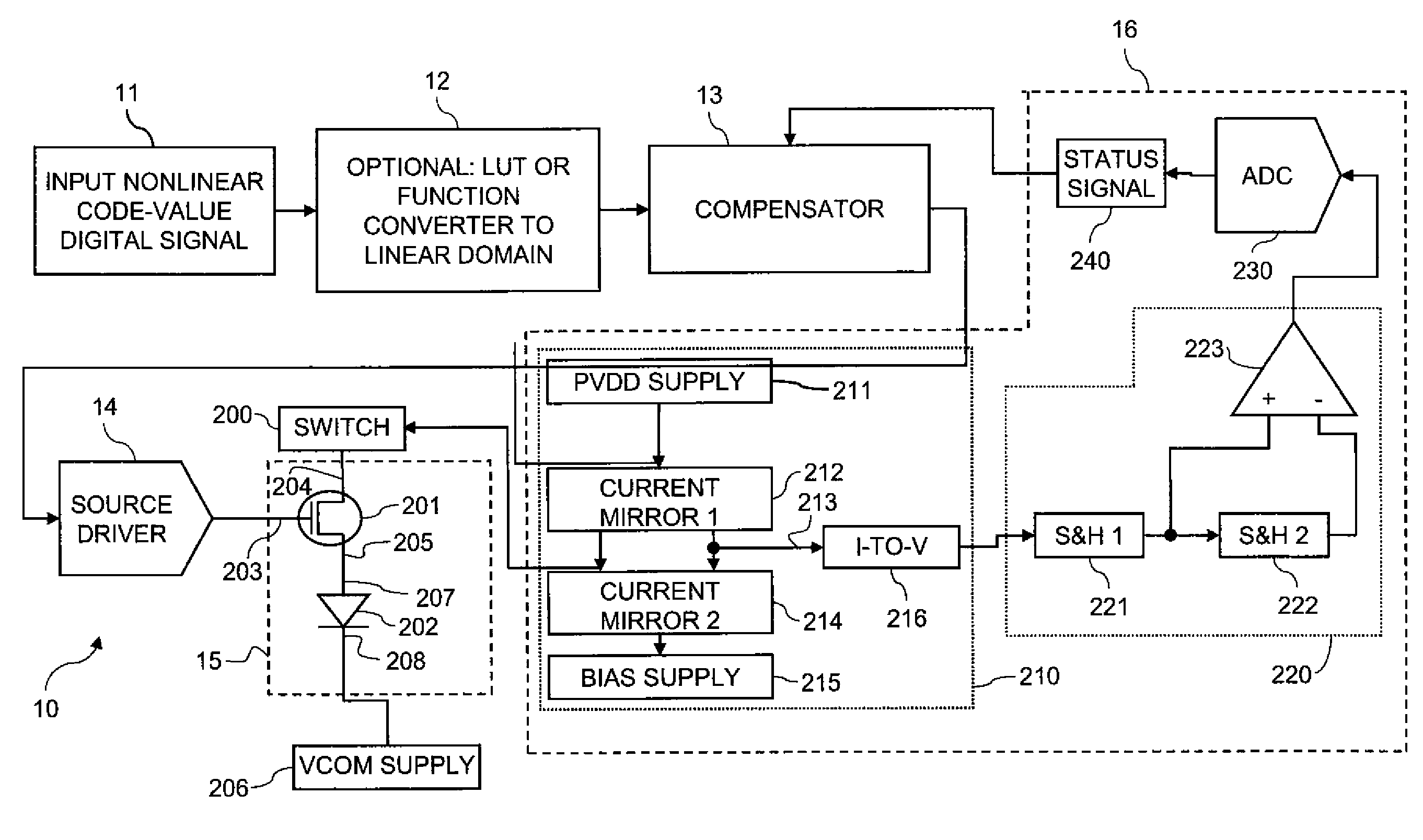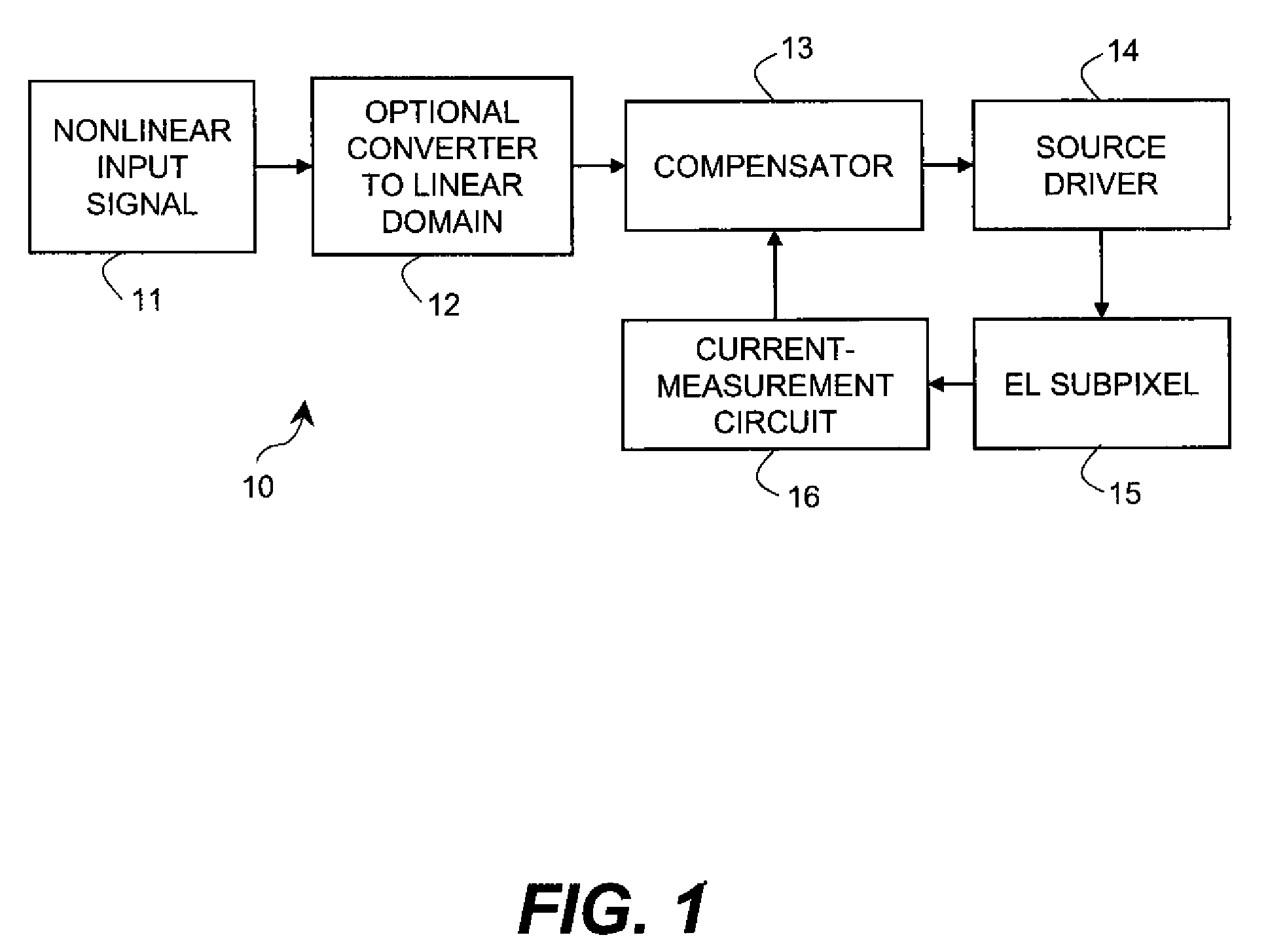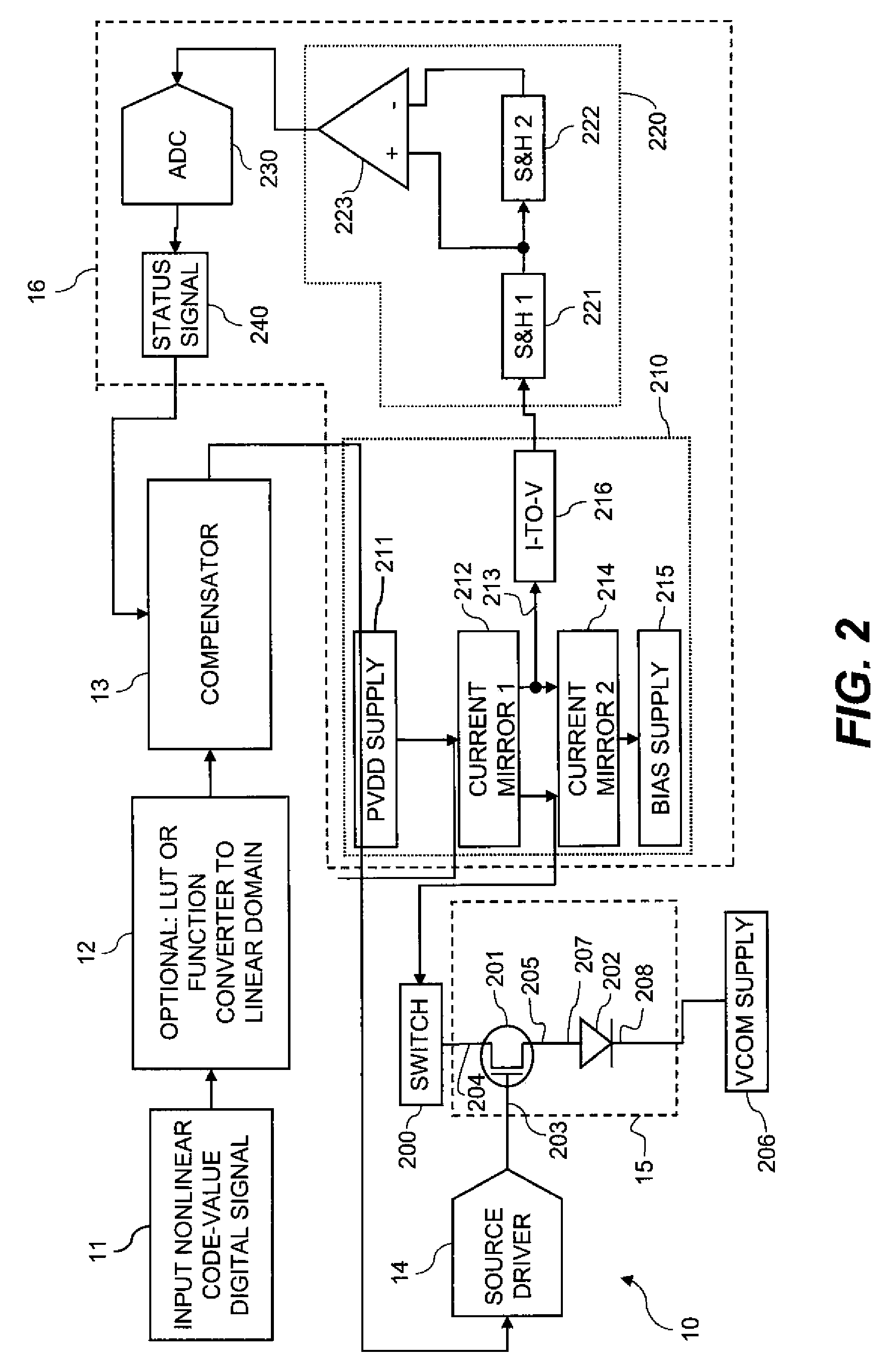Electroluminescent subpixel compensated drive signal
a technology of drive signal and electroluminescent subpixel, applied in the field of electroluminescent subpixel compensation drive signal, can solve the problems of increasing the electronics size of the subpixel, increasing the complexity of the subpixel, and unable to compensate for vsub>oled efficiency loss, so as to reduce the aperture ratio of the subpixel, simplify the compensation of the control signal, and reduce the efficiency loss
- Summary
- Abstract
- Description
- Claims
- Application Information
AI Technical Summary
Benefits of technology
Problems solved by technology
Method used
Image
Examples
first embodiment
[0064]In the present invention, the current difference, e.g. 43, can be the status signal for a corresponding subpixel. In this embodiment the status signal generation unit 240 can perform a linear transform on current difference, or pass it through unmodified. The current through the subpixel (43) at the measurement reference gate voltage depends on, and thus meaningfully represents, the characteristics of the drive transistor and EL emitter in the subpixel. The current difference 43 can be stored in memory 619.
second embodiment
[0065]In a second embodiment, memory 619 stores a target signal i0 611 for the EL subpixel 15. Memory 619 also stores a most recent current measurement i1 612 of the EL subpixel, which can be the value most recently measured by the measurement circuit for the subpixel. Measurement 612 can also be an average of a number of measurements, an exponentially-weighted moving average of measurements over time, or the result of other smoothing methods which will be obvious to those skilled in the art. Target signal i0 611 and current measurement i1 612 can be compared as described below to provide a percent current 613, which can be the status signal for the EL subpixel. The target signal for the subpixel can be a current measurement of the subpixel and thus percent current can represent variations in the characteristics of the drive transistor and EL emitter caused by operation of the drive transistor and EL emitter over time.
[0066]Memory 619 can include RAM, nonvolatile RAM, such as a Flas...
PUM
 Login to View More
Login to View More Abstract
Description
Claims
Application Information
 Login to View More
Login to View More - R&D
- Intellectual Property
- Life Sciences
- Materials
- Tech Scout
- Unparalleled Data Quality
- Higher Quality Content
- 60% Fewer Hallucinations
Browse by: Latest US Patents, China's latest patents, Technical Efficacy Thesaurus, Application Domain, Technology Topic, Popular Technical Reports.
© 2025 PatSnap. All rights reserved.Legal|Privacy policy|Modern Slavery Act Transparency Statement|Sitemap|About US| Contact US: help@patsnap.com



